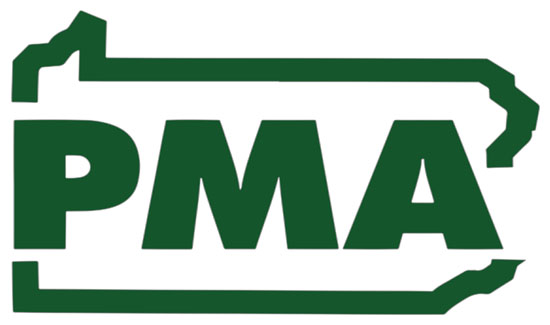Manufacturing Tax Credit Pays Off Big for NEPA

Residents of Northeast Pennsylvania hit the jackpot recently thanks in part to a manufacturing tax credit enacted in 2020 to attract multi-million dollar investments in our natural gas industry. In late October, a Texas-based firm, Nacero, announced plans to invest $6 billion on the site of a former coal mine in Nanticoke to manufacture clean fuels from natural gas.
The largest investment in the region ever will create an estimated 4,000 construction jobs in the area, and the completed facility will employ about 450 workers. It’s slated for completion in 2026-27.
“The Nacero project is a monumental economic and environmental win for our commonwealth,” said PMA President & CEO David N. Taylor. “This is precisely the type of investment Act 66 of 2020 was designed to attract; one that will spur an economic transformation in Northeast Pennsylvania.”
Two Luzerne County lawmakers are largely responsible for the passage of Act 66, the Local Resource Manufacturing Tax Credit. State Rep. Aaron Kaufer (R-Luzerne) introduced the bill in the House, and state Senator John Yudichak (I-Luzerne/Carbon) was one of its biggest champions in the Senate.
“This is about clean energy jobs,” Yudichak said at a news conference announcing the plans for the new plant. “Nacero will fuel the plant with 100 percent renewable energy. They will use natural gas, our abundant, clean-burning natural gas as a feedstock to produce a gasoline that is zero sulfur emissions and 50 percent less CO2 emissions.”
The tax credit law is modeled on a 2012 bill that enticed Shell Chemical Appalachia LLC to build the Pennsylvania Petrochemicals Complex in Beaver County, currently the largest construction project in North America.
“Construction alone on that project has transformed the region, bringing additional investments in education and businesses and improving the quality of life in this community,” PMA and the Pennsylvania Chemical Industry Council said in an earlier joint statement that was part of an effort behind the passage of Act 66.
The Marcellus Shale gas developed in NEPA is a dry gas, nearly all of it pure methane. Methane is used in natural gas synthesis manufacturing plants to create hydrogen and nitrogen in the form of ammonia and urea; two essential products in modern manufacturing.
Additional natural gas projects are sure to come, and the thousands of downstream jobs with them.
A March 2020 economic impact study, completed by PMA, showed that during the 30-month construction phase of four manufacturing plants that use the credit (the max under the legislation) over $600 million in wages will be paid to workers, and over 4,400 new jobs will be created at the plants as well as thousands more in down-the-line businesses. But the Nacero announcement makes this economic model seem minuscule as the project is more than six times larger in initial investment than the projects that were modeled.
“The backward linkage (or multiplier effect) shows how much additional output is generated by a dollar’s worth of final demand for each industry,” the study noted. “Every dollar in final sales of manufactured products supports $1.33 in output from other sectors—this is the largest multiplier of any sector. Manufacturing plants, therefore, have a powerful and positive impact on economic development.”
The project is especially sweet for Yudichak and Kaufer battling a campaign by environmental extremists, mostly through litigation, to shut the industry down.
“Five economic development projects tied to Pennsylvania’s robust natural resources have been shut down by environmental extremists and their allies in the legislature over the last three years,” Yudichak said for an earlier Bulletin story on the issue. “Communities across Pennsylvania have lost over $5 billion in economic development opportunities and millions of dollars in state and local tax revenue. And the Pennsylvania Building and Construction Trade Unions have been denied millions of work hours that would have provided good paying jobs to thousands of union families.”
In Pennsylvania, the projects gone or suspended include a UGI planned pipeline that would have created an estimated 12,000 jobs. And a $1.5 billion U.S. Steel expansion of its steel manufacturing plant that would have created 1,000 construction jobs. Both projects, Yudichak said, were “besieged by endless litigation from environmental zealots and outright opposed by activist legislators, who want to stop the creation of any job connected to the natural gas industry.”
For what? Nothing but unnecessary economic misery in support of another political agenda.
In a critique of the Green New Deal (GND), Ben Zycher, Senior Fellow at the American Enterprise Institute, wrote that the plan to reduce greenhouse gas emissions to zero is based on the fatal premise that “the destruction of resources increases aggregate wealth.”
“It is not to be taken seriously,” he wrote.
GND proponents, he said, argue the plan is necessary to address climate change.
“But the future temperature impacts of the zero-emissions objective would be barely distinguishable from zero,” he wrote. “This conclusion is not controversial and suggests strongly that the GND’s real goal is wealth redistribution to favored political interests under the GND social-policy agenda and a dramatic increase in government control of resource allocation more generally.”
Projects such as the Nacero plant are a win for Pennsylvania’s economy and environment – here’s to hoping this is just the first of many announcements of this kind.







